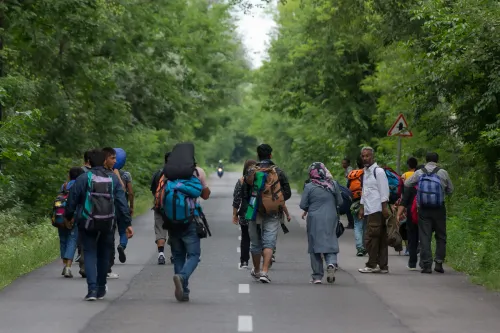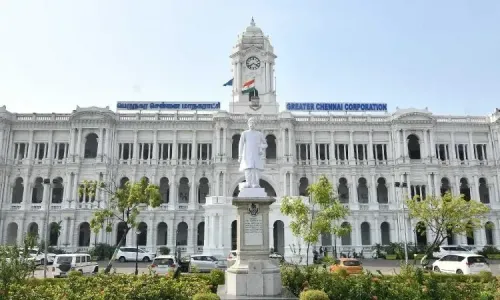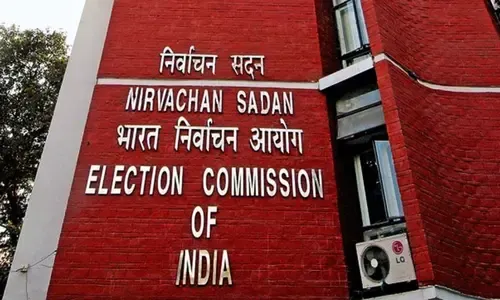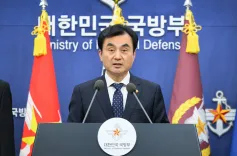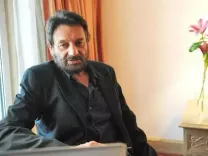Rajasthan CM Calls for Collective Efforts to Promote Hindi
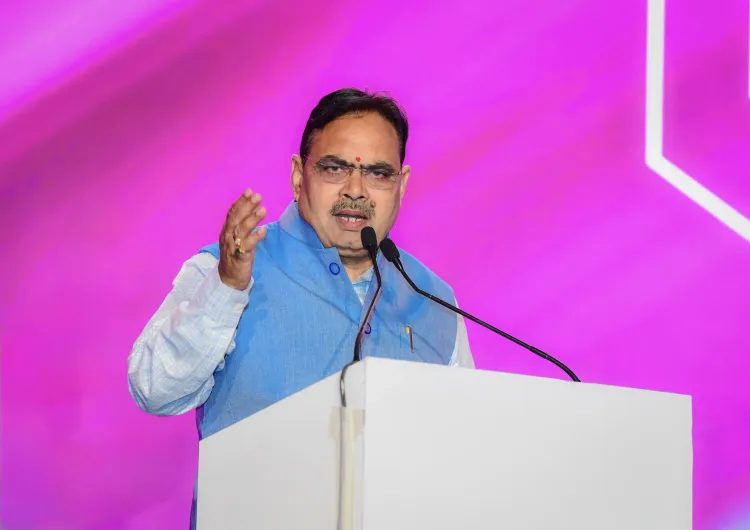
Synopsis
Key Takeaways
- Importance of promoting Hindi as a cultural heritage.
- Integration of Hindi into digital platforms.
- Collaboration among citizens for language elevation.
- Recognition of Hindi's global presence.
- Bridging the gap between official and public languages.
Jaipur, Feb 17 (NationPress) The Chief Minister of Rajasthan, Bhajan Lal Sharma, on Monday highlighted the shared duty of advancing Hindi, identifying it as a vital medium of communication and a representation of India’s cultural heritage and national unity. He urged everyone to collaborate in efforts to elevate this cherished language.
While speaking at the Joint Regional Official Language Conference for the Central, Western, and Northern Regions, hosted by the Official Language Department of the Union Home Ministry at JECC in Jaipur’s Sitapura, the Chief Minister emphasized the importance of a steadfast commitment to encourage respect, usage, and growth of Hindi across all domains. He pointed out the critical role of Hindi in the digital era, advocating for its integration into digital platforms.
The conference also shed light on the latest technological developments for utilizing Hindi in computing. CM Sharma reaffirmed that Hindi transcends being just a language; it is a profound manifestation of India's culture, thoughts, and ideas. He noted that Rajasthan has made significant strides in promoting Hindi within administrative functions, ensuring a standardized application across government sectors.
CM Sharma also commended the leadership of Union Home Minister Amit Shah and Minister of State for Home Nityanand Rai for their significant contributions in enhancing internal security and fostering social harmony throughout the nation. Their initiatives have strengthened national confidence in internal security while reaffirming India’s dedication to its linguistic and cultural identity, he added.
As a special guest at the conference, Nityanand Rai emphasized Hindi's role as a unifying force in India. While recognizing the significance of all Indian languages, he advocated for the reinforcement of Hindi as the national spoken language. “Language is the inner strength of society and the nation. Beyond serving as a communication tool, it embodies the soul of a country,” he remarked. Rai stressed that the effectiveness of governance relies on the accessibility of welfare programs in people's native tongues.
He called for bridging the gap between official and public languages through the adoption of simple, inclusive Hindi, ensuring that every citizen participates in the nation's progression. Over the past decade, substantial efforts have been made to expand the reach and usability of Hindi and other Indian languages nationwide. Deputy Chief Minister Premchand Bairwa noted that Hindi enjoys global recognition, being widely spoken in countries like Nepal, Suriname, Fiji, Mauritius, and Guyana.
During India's freedom struggle, Hindi played a pivotal role in inspiring patriotism and self-respect among the populace. MP Manju Sharma advocated for translating India's finest literary works into Hindi and vice versa to promote national unity and linguistic harmony. Sharma reinforced the concept that regional languages and Hindi are not adversaries but complementary forces. She emphasized the necessity of maximizing Hindi's reach to ensure that government welfare initiatives effectively serve the public.
She also expressed gratitude on behalf of the residents of Jaipur for hosting the conference in the city. Anshuli Arya, Secretary of the Central Official Language Department, highlighted that regional official language conferences are crucial for effectively implementing Hindi in governance. She asserted that the advancement of Hindi and Indian languages is paving the way for a self-reliant and developed India. She further noted that the realization of the deep connection between self-respect, culture, and language is gaining momentum throughout the nation. The conference acted as a vital platform to deliberate strategies for promoting Hindi in governance, technology, and daily life, reinforcing its role as a bridge to national unity and cultural pride.



